
Concert Programs
New Music for Orchestra concert program
Donald Crockett, chair of the Composition program, leads the USC Thornton Symphony in the annual New Music for Orchestra concert featuring original works from Thornton’s celebrated student composers.
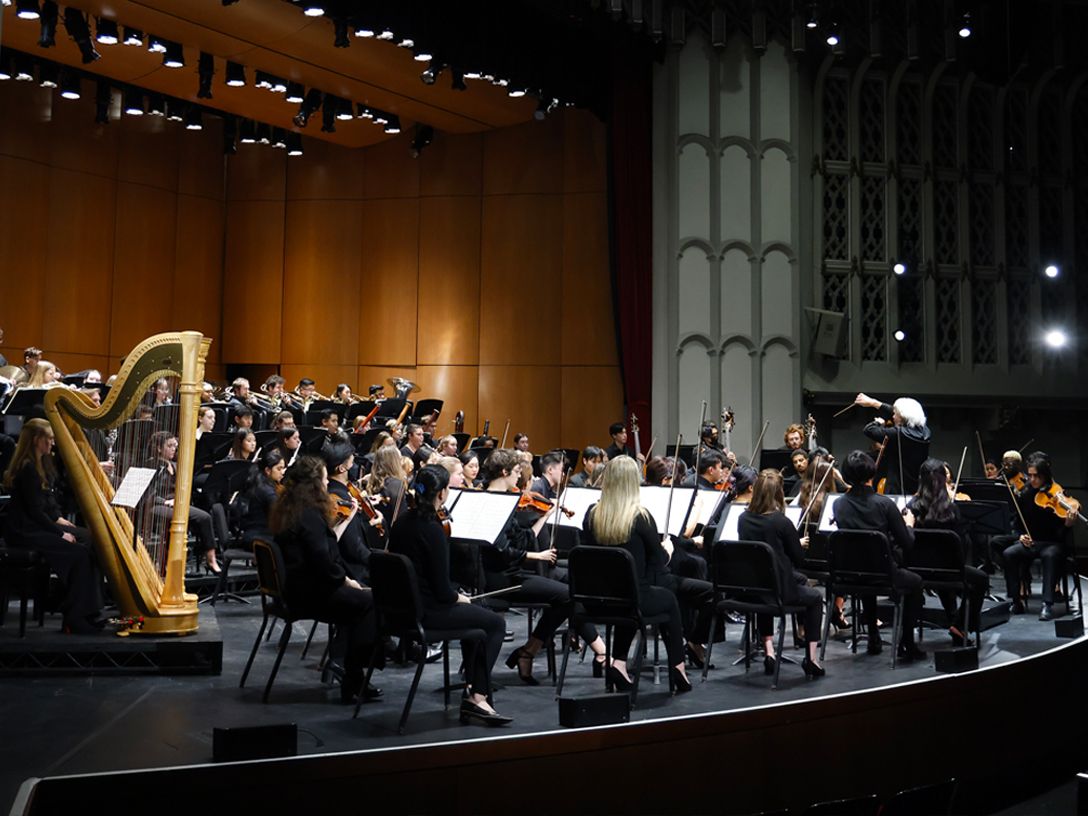
Program
Frisson
Gibson Mahnke
Coil & Venom
Grace Miedziak
After the Freeze
Anuj Bhutani
[æ]
Hannah Rice
A Mechanism
Theo Strich
Have You Seen Her
Erika Poh
Composer Notes
Gibson Mahnke
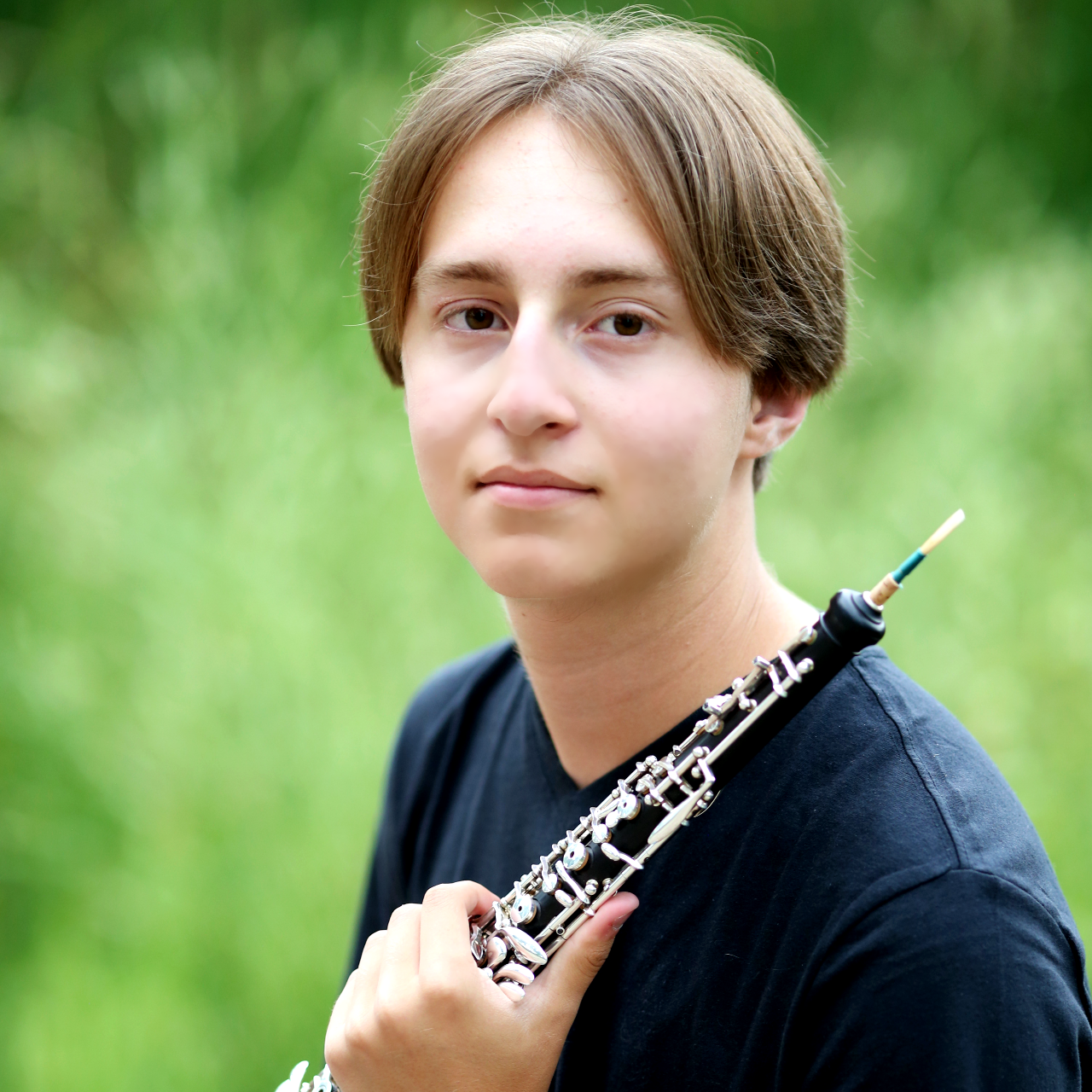 Gibson Mahnke (b. 2004) is a composer, oboist, and percussionist from Denver, Colorado. Mahnke’s compositional style can be described as meditative and reflective, and his music works to bring people together and redefine the place of music in the modern world. He has worked with ensembles such as the Boulder Philharmonic and the Greater Boulder Youth Orchestra, as well as chamber groups such as Transient Canvas. Mahnke is also deeply committed to spreading his love of music with younger musicians. Previously, he worked under the mentorship of Matthew Dockendorf (Assistant Director of Bands, University of Colorado Boulder) as well as served as an intern and resident composer at Westlake Middle School under the supervision of Michael Windham (Director of Bands, Westlake Middle School). Mahnke previously studied composition with Sean Friar, Brian Ebert, Veronika Krausas, Brian Head, and Max Wolpert as well as oboe with Maureen Farkash. Mahnke is in the second year of his Bachelors in Composition at the University of Southern California’s Thornton School of Music where he studies composition with Camae Ayewa (Dennis). Alongside composition, he studies oboe with Joel Timm.
Gibson Mahnke (b. 2004) is a composer, oboist, and percussionist from Denver, Colorado. Mahnke’s compositional style can be described as meditative and reflective, and his music works to bring people together and redefine the place of music in the modern world. He has worked with ensembles such as the Boulder Philharmonic and the Greater Boulder Youth Orchestra, as well as chamber groups such as Transient Canvas. Mahnke is also deeply committed to spreading his love of music with younger musicians. Previously, he worked under the mentorship of Matthew Dockendorf (Assistant Director of Bands, University of Colorado Boulder) as well as served as an intern and resident composer at Westlake Middle School under the supervision of Michael Windham (Director of Bands, Westlake Middle School). Mahnke previously studied composition with Sean Friar, Brian Ebert, Veronika Krausas, Brian Head, and Max Wolpert as well as oboe with Maureen Farkash. Mahnke is in the second year of his Bachelors in Composition at the University of Southern California’s Thornton School of Music where he studies composition with Camae Ayewa (Dennis). Alongside composition, he studies oboe with Joel Timm.
Grace Miedziak
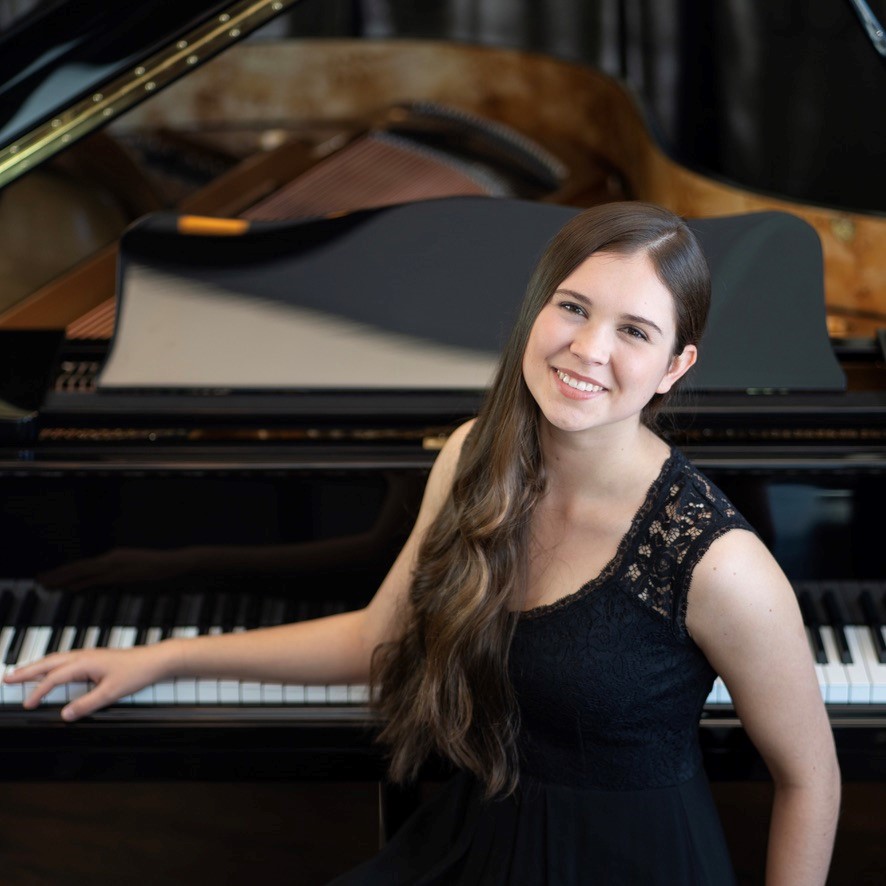 Grace Miedziak (b. 2002) is a composer and producer raised in Central Oregon and currently based in Los Angeles. Miedziak aims to shatter the barriers between popular and concert spaces and bring modernity and innovation to the classical music scene. Drawing inspiration from her personal journey, Miedziak’s bold, vulnerable works explore complex emotions and integrate modern electronic elements.
Grace Miedziak (b. 2002) is a composer and producer raised in Central Oregon and currently based in Los Angeles. Miedziak aims to shatter the barriers between popular and concert spaces and bring modernity and innovation to the classical music scene. Drawing inspiration from her personal journey, Miedziak’s bold, vulnerable works explore complex emotions and integrate modern electronic elements.
As a young teen, Miedziak’s piano compositions and debut chamber piece, For Little Grace (2018), earned statewide recognition from the MTNA Composition Competition. A year later, she was commissioned to compose Seereise (2019) for the Metropolitan Youth Symphony in Portland, which earned an honorable mention from the New York Emerging Composers Competition. When the pandemic hit in 2020, she wrote and produced songs for National Public Radio (NPR) and scored multiple films every year for USC’s School of Cinematic Arts. Since then, Miedziak’s solo cello piece Trout and the Hatch (2021) was premiered by Fear No Music and performed by Nancy Ives at the opening night of the Chamber Music Northwest (CMNW) festival in Portland, OR. She also recently completed a commission by the Young Artist Institute at CMNW to compose for string quartet. This Fall, Miedziak has also produced and arranged strings, vocals, and percussion for many up-and-coming pop and indie artists for their next big releases.
Anuj Bhutani
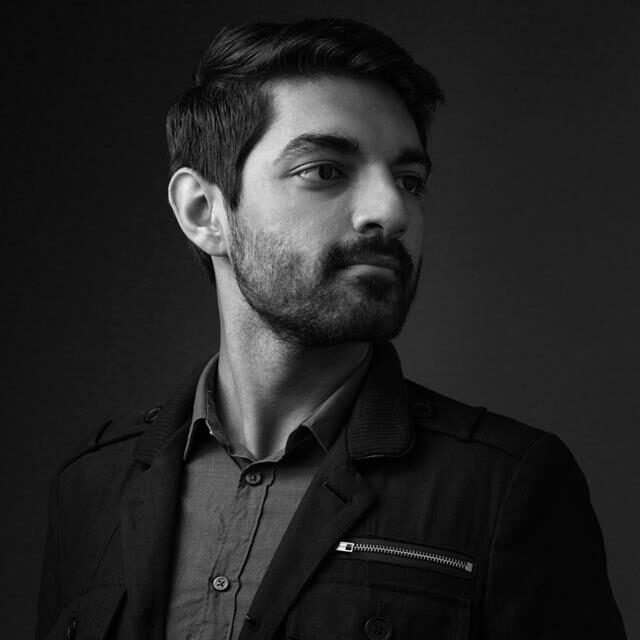 Anuj Bhutani is a quickly emerging composer/performer whose music often features visceral grooves; ethereal, meditative spaces; a combination of acoustic instruments and electronics, and a strong sense of narrative in a genre-fluid space. Described as “a force multiplier with more talents than time” (PATRON Magazine), whose music is “alternately celestial and dark” (John Schaefer, WNYC New Sounds), he’s won Chamber Music America’s Classical Commissioning Grant, an ASCAP Morton Gould Young Composer Award, 1st prize in Cerddorion Vocal Ensemble’s Emerging Composer Competition, Verdigris Ensemble’s ION Composer Competition, Warren County Summer Music School’s Promising Young Composer Competition, Blank House Media’s Recording Competition, Nief-Norf International Call for Scores, 3rd prize in the American Prize in Choral Composition and The Choral Project’s Composition Competition, and was a Finalist for the Bowdoin College Marion Brown Prize, Third Coast Percussion’s Creative Currents, and in the VOCES8 and Red Note Composition Competitions. He’s been selected for American Composer’s Orchestra’s Earshot, NewAm Composer’s Lab, Banff Centre’s Evolution: Classical, Norfolk Chamber Music Festival’s New Music Workshop at Yale School of Music, Albany Symphony’s Orchestrating for the 21st Century Workshop, RED NOTE Festival Composition Workshop, the Next Festival of Emerging Artists, residencies at Avaloch Farm Music Institute, Atlantic Center for the Arts (#188 with Judd Greenstein, #191 with Missy Mazzoli), Virginia Center for the Creative Arts, the IRCAM Forum, ISCM World Music Days, multiple SCI conferences, SEAMUS conference, Impulse New Music Festival, Nick Photinos’ “1:2:1” program, the Hear Now Festival, and New York City Electroacoustic Music Festival. His work has been commissioned or performed by Ashley Bathgate, Khemia Ensemble, Raleigh Civic Symphony, Metropolis Ensemble, Extended Music Collective, Verdant Vibes, Allen Philharmonic, Andrew Tholl of Wild Up, Left Coast Chamber Ensemble, Lauren Cauley Kalal of Switch~ ensemble, Inversion Ensemble, Daisy Press, the William Paterson University Percussion Ensemble, and more.
Anuj Bhutani is a quickly emerging composer/performer whose music often features visceral grooves; ethereal, meditative spaces; a combination of acoustic instruments and electronics, and a strong sense of narrative in a genre-fluid space. Described as “a force multiplier with more talents than time” (PATRON Magazine), whose music is “alternately celestial and dark” (John Schaefer, WNYC New Sounds), he’s won Chamber Music America’s Classical Commissioning Grant, an ASCAP Morton Gould Young Composer Award, 1st prize in Cerddorion Vocal Ensemble’s Emerging Composer Competition, Verdigris Ensemble’s ION Composer Competition, Warren County Summer Music School’s Promising Young Composer Competition, Blank House Media’s Recording Competition, Nief-Norf International Call for Scores, 3rd prize in the American Prize in Choral Composition and The Choral Project’s Composition Competition, and was a Finalist for the Bowdoin College Marion Brown Prize, Third Coast Percussion’s Creative Currents, and in the VOCES8 and Red Note Composition Competitions. He’s been selected for American Composer’s Orchestra’s Earshot, NewAm Composer’s Lab, Banff Centre’s Evolution: Classical, Norfolk Chamber Music Festival’s New Music Workshop at Yale School of Music, Albany Symphony’s Orchestrating for the 21st Century Workshop, RED NOTE Festival Composition Workshop, the Next Festival of Emerging Artists, residencies at Avaloch Farm Music Institute, Atlantic Center for the Arts (#188 with Judd Greenstein, #191 with Missy Mazzoli), Virginia Center for the Creative Arts, the IRCAM Forum, ISCM World Music Days, multiple SCI conferences, SEAMUS conference, Impulse New Music Festival, Nick Photinos’ “1:2:1” program, the Hear Now Festival, and New York City Electroacoustic Music Festival. His work has been commissioned or performed by Ashley Bathgate, Khemia Ensemble, Raleigh Civic Symphony, Metropolis Ensemble, Extended Music Collective, Verdant Vibes, Allen Philharmonic, Andrew Tholl of Wild Up, Left Coast Chamber Ensemble, Lauren Cauley Kalal of Switch~ ensemble, Inversion Ensemble, Daisy Press, the William Paterson University Percussion Ensemble, and more.
He is currently pursuing his master’s degree at USC with Camae Ayewa (Dennis) and completed his bachelor’s degree in composition at University of North Texas. His previous teachers have included Andrew Norman, Ted Hearne, Joseph Klein, Andrew May, Sungji Hong, Drew Schnurr, and UNT Composer-in-Residence Bruce Broughton. He also holds a BA in Psychology from UT Austin.
Hannah Rice
 Hannah Rice is a composer and coloratura soprano whose music features driving rhythms and stark contrasts with themes rooted in deepening her understanding of personal and collective human experiences, especially those of womxn. Currently, she is interested in exploring the raw, cathartic release of screams and the different ways she can recreate this sound and feeling in vocal and concert music.
Hannah Rice is a composer and coloratura soprano whose music features driving rhythms and stark contrasts with themes rooted in deepening her understanding of personal and collective human experiences, especially those of womxn. Currently, she is interested in exploring the raw, cathartic release of screams and the different ways she can recreate this sound and feeling in vocal and concert music.
A champion of vocal music, Hannah was 1 of only 10 composers selected by the National Association of Teachers of Singing to be a part of their 2021-22 Composer Mentorship Program which included a commission from NATS, with major support from Lori Laitman and the Cincinnati Song Initiative. In January of 2021, her choral piece “To Fly a Plane” from Dear World was published by Hal Leonard under the Craig Hella Johnson series. Her work has been performed at many festivals and venues including New Music on the Point, New Music on the Bayou, the International Clarinet Festival, and, most notably, Carnegie Hall. This summer, Hannah will be attending the Aspen Music Festival as a 2024 composition fellow.
In 2022, Hannah graduated from Louisiana State University with a dual B.M. degree in composition and vocal performance. She is currently pursuing M.M. degrees at USC’s Thornton School of Music and is excited to sing in USC’s upcoming production of Kaija Saariaho’s La Passion de Simone.
Theo Strich
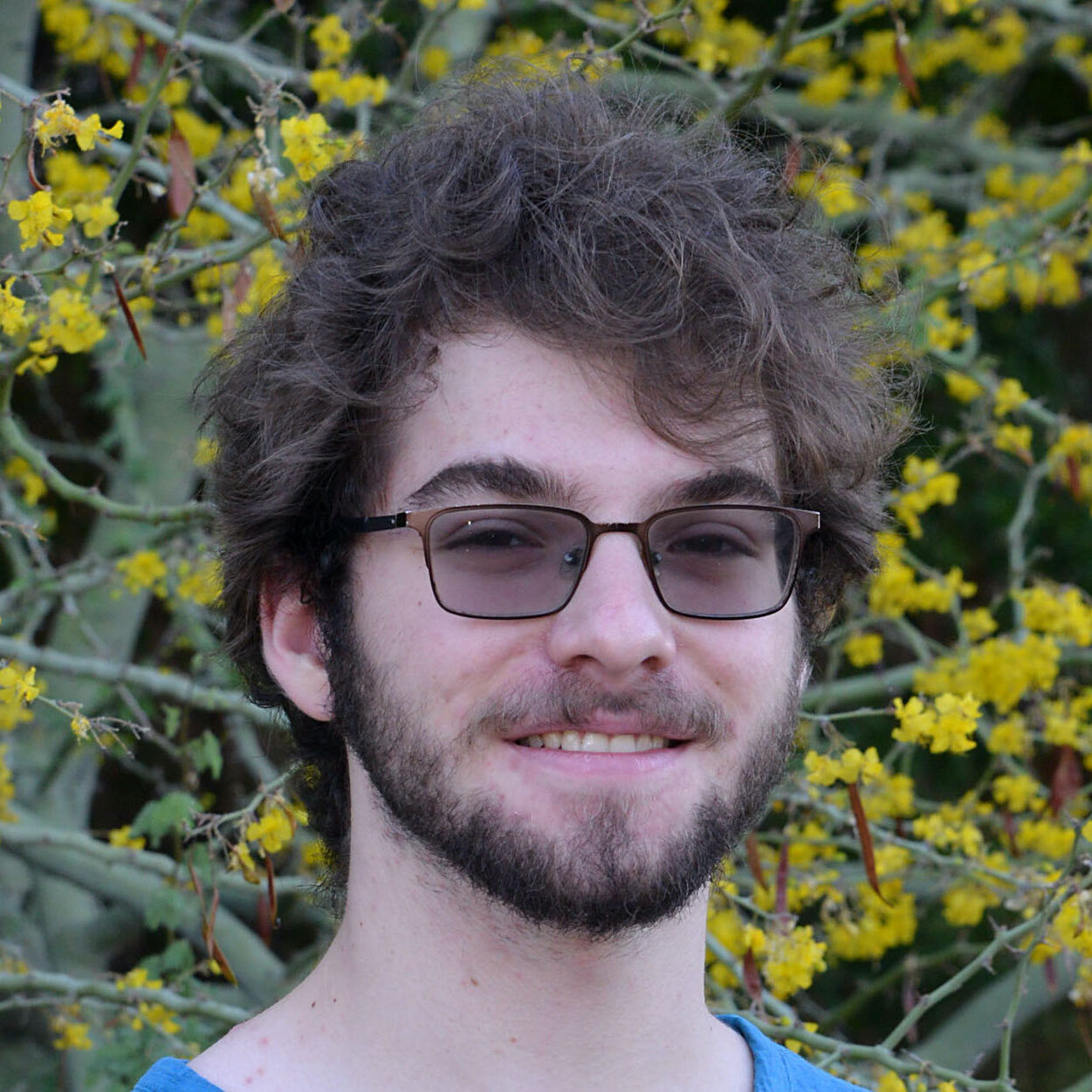 Theodore Strich grew up in Tempe, Arizona, discovering music by playing in classical and jazz groups as a flautist and saxophonist.
Theodore Strich grew up in Tempe, Arizona, discovering music by playing in classical and jazz groups as a flautist and saxophonist.
Theodore now writes and plays music in a range of styles, including electronic, ambient, modern classic, and jazz. He also works with games and interactive audio, both as a composer and a programmer.
Erika Poh
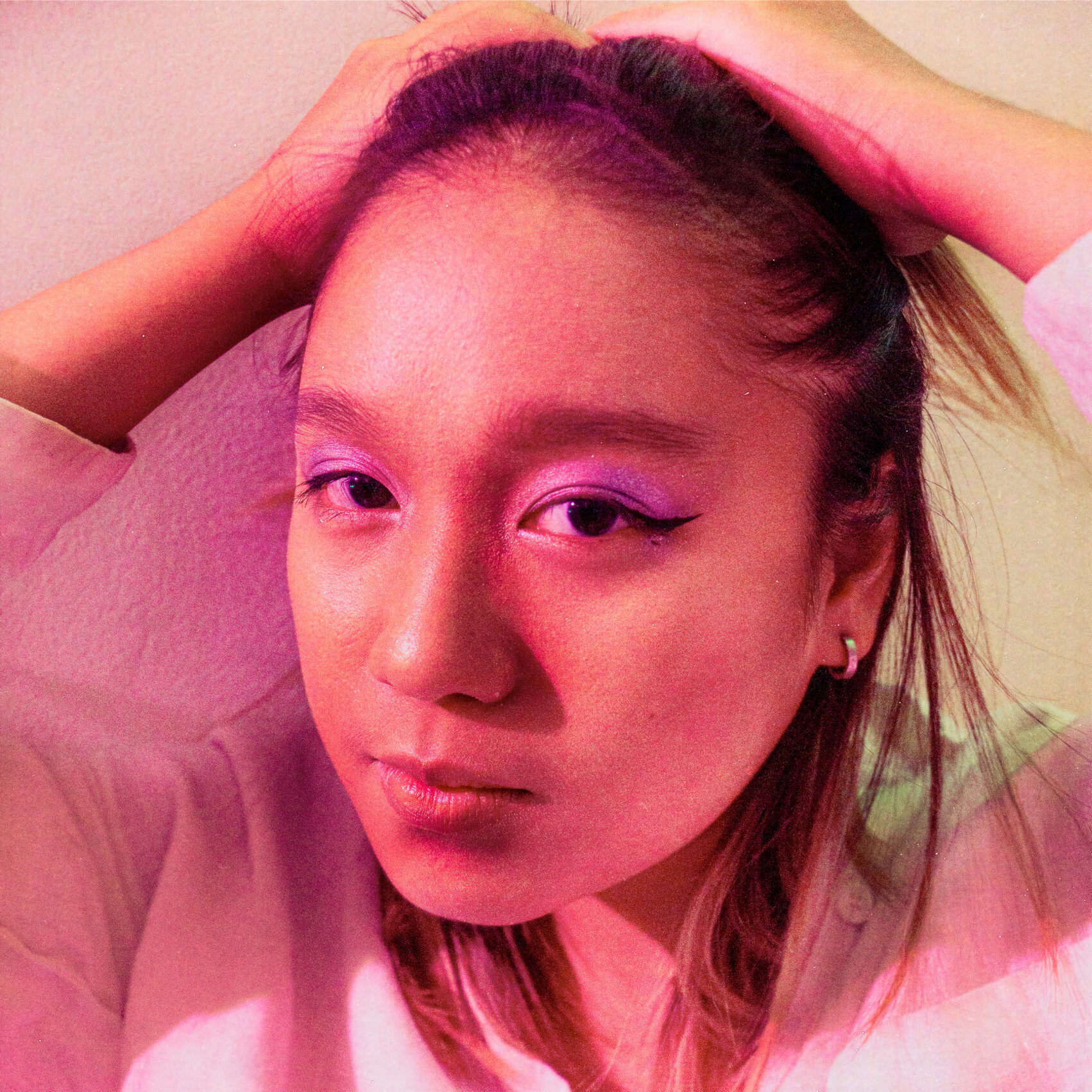 Erika Poh is a Singaporean composer, singer-songwriter, arranger and solo artist based in Los Angeles, California. Erika started playing the piano at 5 and trained as a classical pianist for 15 years. During that time, she turned to composition and started writing her own music. She has written for classical combinations of chamber ensembles, musicals, dance film, film, records and string arrangements. Now after having composed for theatre, film, dance and concert music, Erika is highly invested in creating multi-disciplinary, collaborative work that looks to the future. She has just released her first solo EP Teens In My Twenties, under her solo artist project, and is looking to release her sophomore record. Before leaving for the states, she studied composition with Tan Chan Boon. She now studies Composition at the University of Southern California under prolific musicians; Camae Ayewa (Dennis), Patrice Rushen, Chris Sampson, Frank Ticheli and Donald Crockett and is looking to finish her studies in May 2024.
Erika Poh is a Singaporean composer, singer-songwriter, arranger and solo artist based in Los Angeles, California. Erika started playing the piano at 5 and trained as a classical pianist for 15 years. During that time, she turned to composition and started writing her own music. She has written for classical combinations of chamber ensembles, musicals, dance film, film, records and string arrangements. Now after having composed for theatre, film, dance and concert music, Erika is highly invested in creating multi-disciplinary, collaborative work that looks to the future. She has just released her first solo EP Teens In My Twenties, under her solo artist project, and is looking to release her sophomore record. Before leaving for the states, she studied composition with Tan Chan Boon. She now studies Composition at the University of Southern California under prolific musicians; Camae Ayewa (Dennis), Patrice Rushen, Chris Sampson, Frank Ticheli and Donald Crockett and is looking to finish her studies in May 2024.
Program Notes
Frisson [frēˈsôN] (n.) – a sudden strong feeling of excitement or fear; a thrill. (“Oxford
Dictionary”)
Gibson Mahnke
Humans are thrill seekers. We always strive for more and constantly push technology, science, and even our own bodies to their limits. Frisson taps into this human desire for excitement and thrill. When I sat down to write this piece, I wanted to invoke just the right amount of thrill, excitement, and even a little bit of danger; the perfect amount of Frisson. The piece starts with an exuberant fanfare that returns throughout, driving the piece forward. String and wind ostinatos work to give the piece constant movement, like a locomotive barreling toward its destination. As the piece continues, the excitement, as well as the chaos, grows. The piece teeters on the edge of being out of control, as if the train is barreling around a sharp turn. Finally, the piece reaches an explosive ending in which the percussion steals time from under the nose of the conductor, dragging them and the rest of the ensemble along in a frantic, exuberant ending passage.
This piece, at its core, is all about taking risks and seeking discomfort. Only once we get out of our comfort zone do we achieve the thrill that is Frisson. For me, writing this piece was a risk. It was one of the biggest projects I have ever undertaken and was filled with highs and lows. However, because I was willing to leave my comfort zone behind and embark on this new musical journey, I was able to create something of which I am truly proud. I hope you, as a performer or an audience member, strive to push the boundaries of what you thought possible for yourself and find Frisson.
Coil & Venom
Grace Miedziak
“Medusa is familiar to many as a symbol of women’s rage. Many feminists see their own rage reflected in the image of Medusa, ‘female fury personified.’ With her fearsome countenance framed with snakes, able to paralyze with a glance, it is true that Medusa is terrible, terrifying—but she is also terrified. Her face, frozen in an openmouthed scream, eyes wide, teeth bared, is the primal, primate mask of fear. This gut-wrenching image is an eloquent expression of women’s rage, but also, I suggest, of women’s trauma… Ultimately we are invited to hold our fear, rage and trauma in a place of love and compassion, for ourselves and others, so that we can be protected, instead of paralyzed.”
—Lauren Shannon, Re-visioning Medusa: From Monster to Divine Wisdom
The musical ideas of Coil & Venom were inspired by the bronze sculpture Medusa with the Head of Perseus (Luciano Garbati, 2008). As the title suggests, this sculpture reverses the roles of the infamous Perseus with the Head of Medusa (Benvenuto Cellini, 1545), which more accurately depicts the end of Medusa’s tragic mythological tale. Garbati’s response to Cellini’s sculpture was powerful, as it reversed a story of victimization and anger into triumph and action. From there, I thought about Medusa’s rage and how it could be translated to the orchestra, and that’s how Coil & Venom began.
While composing this piece, I reflected on Medusa’s anger and felt compelled to dig deep within myself to articulate my own. So often, it’s daunting for women to express anger freely, so I battled this notion by exploring what raw and “ugly” emotions can sound like in the orchestra. I composed booming percussion sections and thick brass to convey fury, while the dissonant strings, representing Medusa’s daunting head of snakes, feature intertwining and “slithering” lines. Further, concurrent with the discomfort in this piece is strength and beauty; soaring woodwinds convey elegance, and rich melodies in the lower strings represent courage. These compositional choices highlight Medusa’s beauty because she wasn’t always a monster, but rather, the choice was made for her.
After the Freeze
Anuj Bhutani
The original version of After the Freeze was written after the historic Winter Uri freeze that hit the southern U.S. in February of 2021. As we entered yet another level of isolation amidst freezing temperatures and rolling blackouts during the pre-vaccine era of the COVID-19 pandemic, I created a backing track with synthesizers and electronic percussion, over which I invited eight colleagues to freely improvise without hearing what any other musician was contributing. I curated their responses, added electronics, and edited the videos of each “ensemble” member performing into what was essentially an installation.
The 2nd version for string orchestra, drum-set, electric bass, with improvising tabla, sitar, and Carnatic singer was commissioned by Ryan Ross and the Allen Philharmonic. In addition to creating a dialog between Western and Indian classical music in this version, I was able to bridge the orchestra more directly with the worlds of funk, pop, and rock music (with a hint of jazz) that I grew up listening to as well.
In this 3rd version for orchestra, these connections between genres (and my musical identities) are even further magnified.
[æ]
Hannah Rice
When I was young, I found so much joy in screaming, squealing, and making unbridled noises on what I now consider my primary instrument – the voice. However, in my pursuit of classical voice as a young adult, I lost that sense of fun noise-making that drew me to music in the first place and began to focus far too much on polished perfection. I think it is easy for us to lose sight of why we create as artists, and through [æ], I hope to bring the players, the audience, and myself back to that state of boundless, child-like glee for a moment – a place in which we are free to let out all of the StrAnge, bEaUtiFuL, ChAoTiC sounds we might want to make and to scream as loudly and freely as we desire. [æææææææææææææ]!
A Mechanism
Theo Strich
Program notes intentionally left blank.
Have You Seen Her
Erika Poh
Have You Seen Her, can be a question and a statement. “I can’t find her, have you seen her?” or “She looks so slay have you seen her!” Where is she and who is she? The character ‘her’ is unyielding and unabashed. She is young and she is excited for the future. This piece speaks to a sense of emergence—her flop era is behind her—she is glowing.
Ensemble
Violin I
Charlie Lin, concertmaster
Bradley Adam Bascon
Diana Dawydchak
Yu Gong
Robert Henson
Agatha Blevin
Kaiyuan Wu
Sofia Llacer Chamberlain
Sarah Beth Overcash
Violin II
Anna Renton, principal
Eric Cheng
Veronika Manchur
Ariana O’Connell
Maya Masaoka
Laura Gamboa
Qiaorong Ma
Emily Hsu
Marena Miki
Viola
Prosper Luchart, principal
Yu-Chen Yang
Ziyan Zeng
Paulina Flores
Jay Maldonado
Katherine Brown
Cecile McNeill
Cello
Maddie Bolin, principal
Olivia Marckx
Joseph Kim
Samuel Guevara
Jonathan Lin
Taewon Park
Bass
Jared Prokop, principal
Zach Hislop
Xinyun Tu
Lillian Young
Electric Bass
Yafeu Tyhimba
Harp
Paulina Delgadillo
Carter Williams
* principal on Mahnke
+ principal on Miedziak
^ principal on Bhutani
** principal on Rice
++ principal on Strich
^^ principal on Poh
Flute
Jeongwon Bae***
Sylvia Ettinger^
Jenny An+++
Tony Lin^^
Piccolo
Jenny An
Jeongwon Bae
Oboe
Katarina Lukich
Chase Klein+^^
Jingming Zhao*^**++
English Horn
Chase Klein
Clarinet
Chanul Kim***
Bram Schenk
Yoomin Sung**++^^
Anders Peterson
E-flat Clarinet
Andrei Bancos
Bass Clarinet
Victor Martinez Jara
Bassoon
Heeseung Lee*+^**++^^
Chriss Lee
John Gonzalez
Contrabassoon
John Gonzalez
Saxophone
Isaac Ko
Ezequiel Castaneda
Aria Morgan
Reese Whitley
Horn
Kira Goya*^
Reese Romero
Evelyn Webber**++
Joe Oberholzer
Rebecca Barron+^^
Trumpet
EJ Miranda*
Ryan Fuhrman
Jazzmine Van Veld+
Kobina Sampson-Davis^**
Emily Nastelin
Talitha Duckworth^^
Lauren Spring++
Trombone
Pablo Castro*^++
Sean Cooney+**
Stephen Hannan^^
Bass Trombone
Stephen Hannan
Tuba
Logan Westerviller
Timpani
David Lee
Percussion
Preston Spisak*+^**++^^
Marcos Salgado
Leigh Wilson